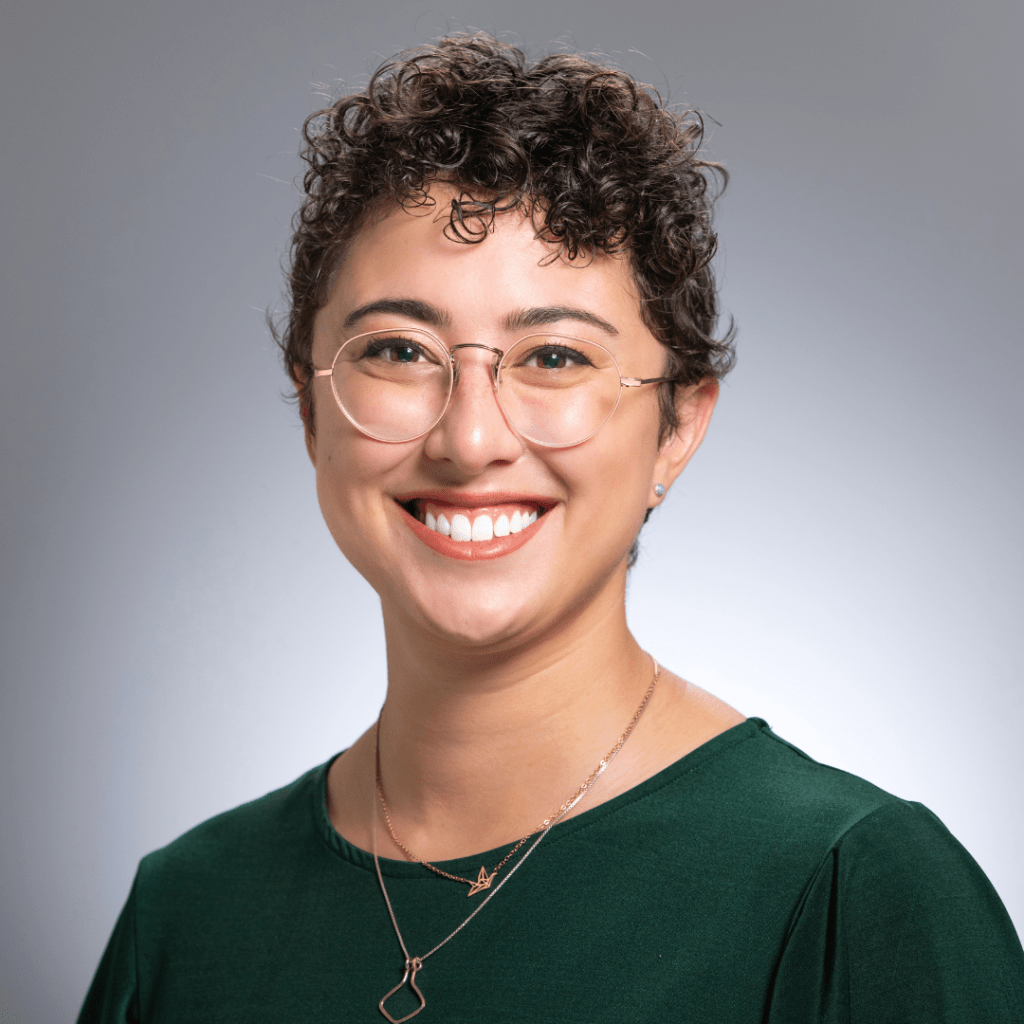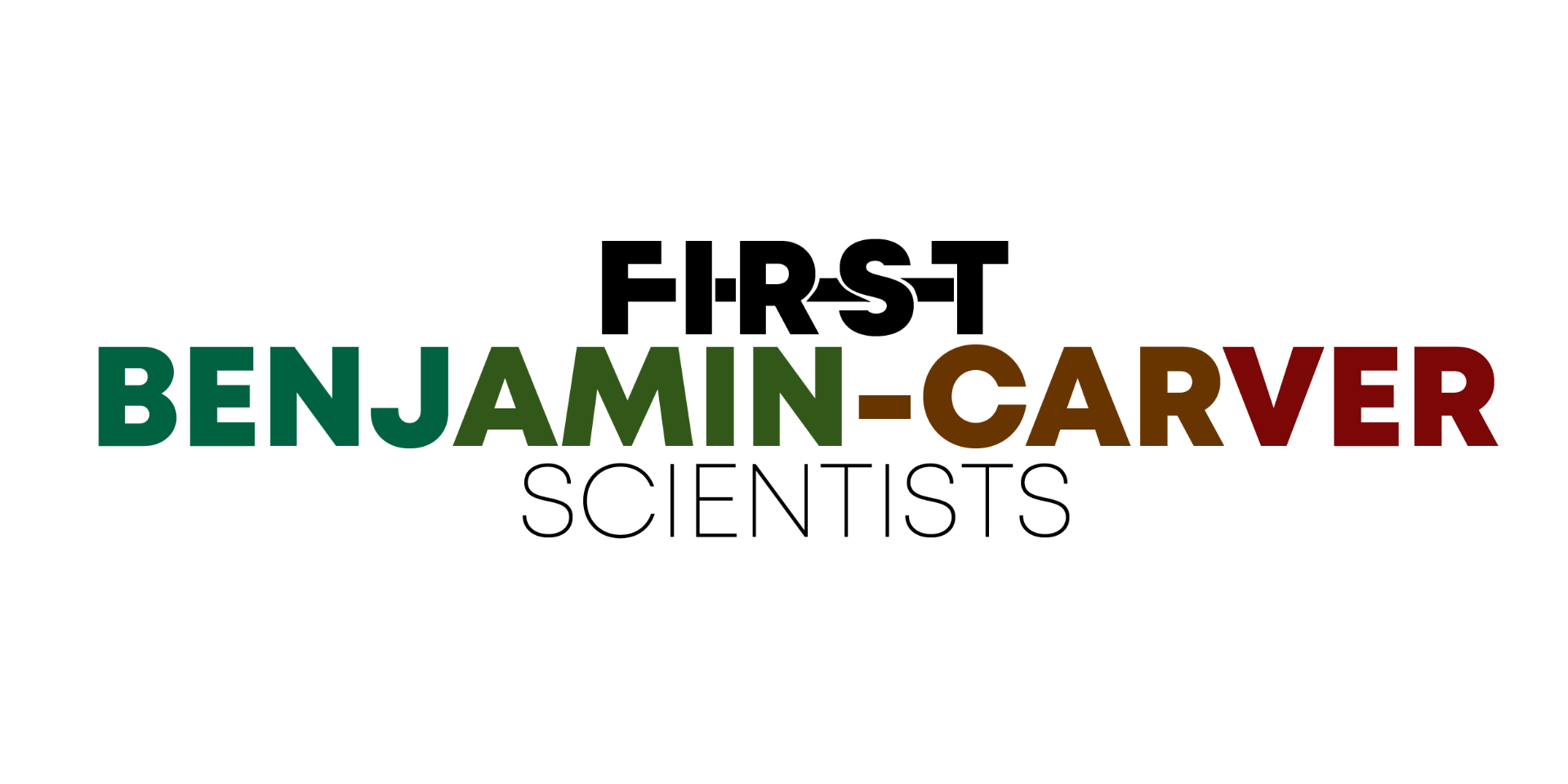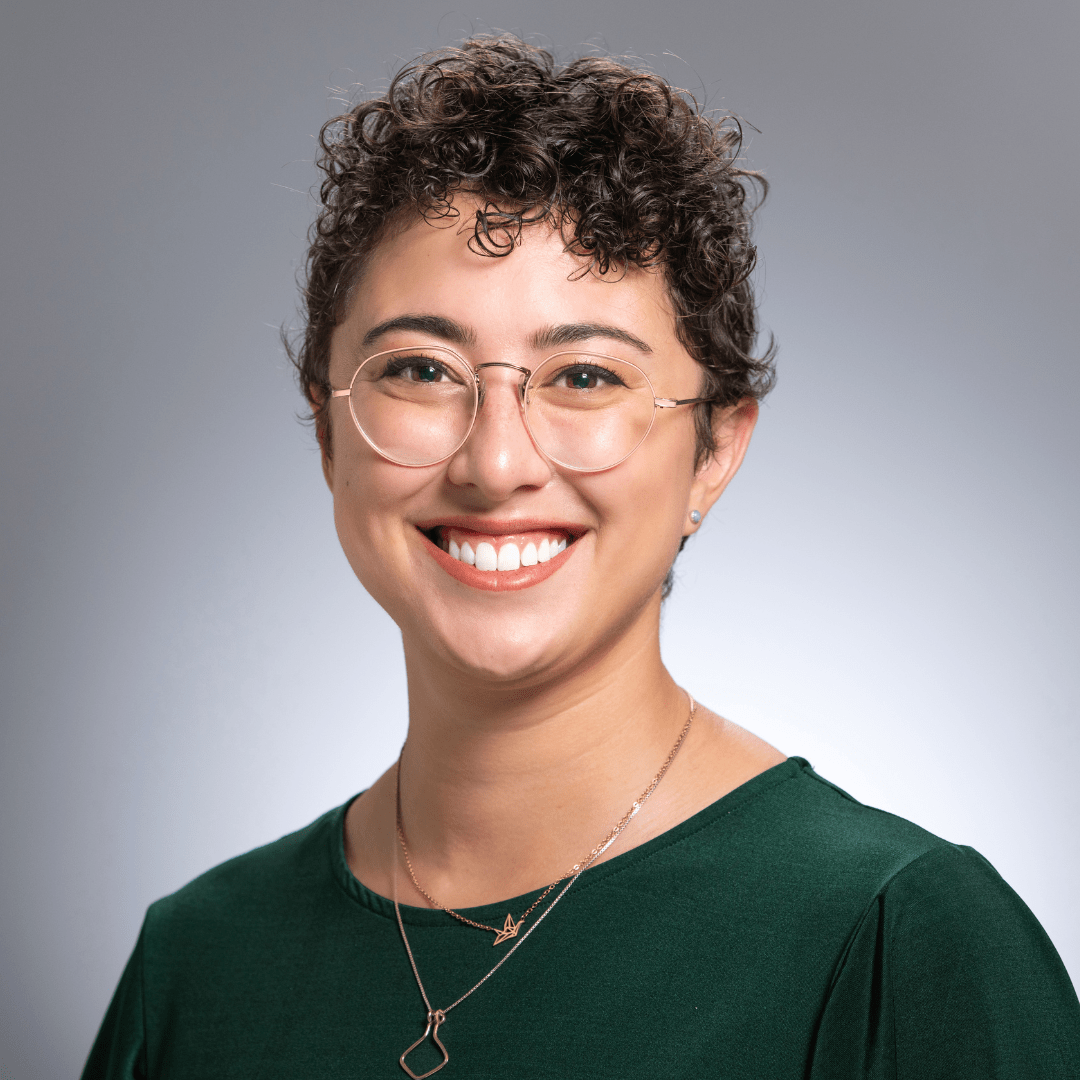Originally from rural West Virginia, Kirsten Schoonover, Ph.D., obtained her bachelor’s degree in psychology with a minor in Japanese studies from West Virginia University. First eyeing a career as a lawyer, Schoonover realized after completing a law internship that the field was not for her.

About the FIRST Partnership
To achieve a more diverse and representative workforce, longtime partners—UAB and Tuskegee University — received funding from the National Institutes of Health Common Fund to establish a community of scientists committed to inclusive excellence. Throughout 2023, the Benjamin-Carver FIRST program has been actively recruiting faculty and welcoming them into their respective peer cluster community.
In this series, we’re featuring each of the Benjamin-Carver Scientists—showcasing their impressive educational history and plans for future research.
Meet Kirsten Schoonover, Ph.D.
Having consistently worked in research labs (often multiple at a time) throughout her undergraduate career, Schoonover gravitated toward behavioral neuroscience and ended up working in labs focused on Alzheimer’s disease and stroke recovery.
“By that point, I realized I was fascinated by the molecular basis for pathology, and so I prioritized gaining as much of this experience as possible,” Schoonover said.
Schoonover’s interest in psychiatry dates back to when she was 14, when her grandfather suffered from vascular dementia. Then, her graduate mentor, Rosalinda Roberts, Ph.D., ignited an interest in Schoonover to use electron microscopy to study synaptic ultrastructure in schizophrenia.
“Once I entered the field of psychiatry and schizophrenia, I never looked back,” Schoonover said. “It was too fascinating. I knew I could spend my entire life asking questions in this field.”
After earning her undergraduate degree, Schoonover entered her Ph.D. program at UAB, where she did a couple of research rotations her first year before joining Dr. Roberts’ lab.
Now, Schoonover’s studies on the neural basis of the pathology of memory in schizophrenia patients have her analyzing postmortem human tissue to determine how the role of trace metal transport can affect synaptic signaling. She hopes to be able to obtain an R01 level grant and begin brain collections for the Alabama Brain Collection.
Building a career in psychiatry and behavioral neurobiology as a FIRST scholar
Ideal timing led to Schoonover’s connection with the FIRST program. A professor she knew as a graduate student at UAB alerted her to the possibility as Schoonover was contemplating her next moves during year four of her postdoc.
“Perfect timing aside, the FIRST program seemed like a perfect fit,” Schoonover said. “As a graduate student at UAB, I had benefitted greatly from a similar model meant for graduate students and therefore was keenly aware of the significant impact and power that lay within a program like FIRST. Furthermore, I had never been an assistant professor before!”
As she looks toward the future, her long-term goals include creating a brain bank of human samples from diverse populations diagnosed with various psychiatric disorders. This is in an effort to more accurately represent the populations afflicted with serious mental illness. She also strives to become a mentor for underrepresented groups in science.
Schoonover said the FIRST program has been “instrumental” in helping her achieve her goals thus far.
“The FIRST program has united a group of young investigators who all have the same goals: to be successful health disparities researchers who positively impact our fields,” she said. “The support I have received not only from my cohort but from the FIRST mentors has been immeasurable.”


